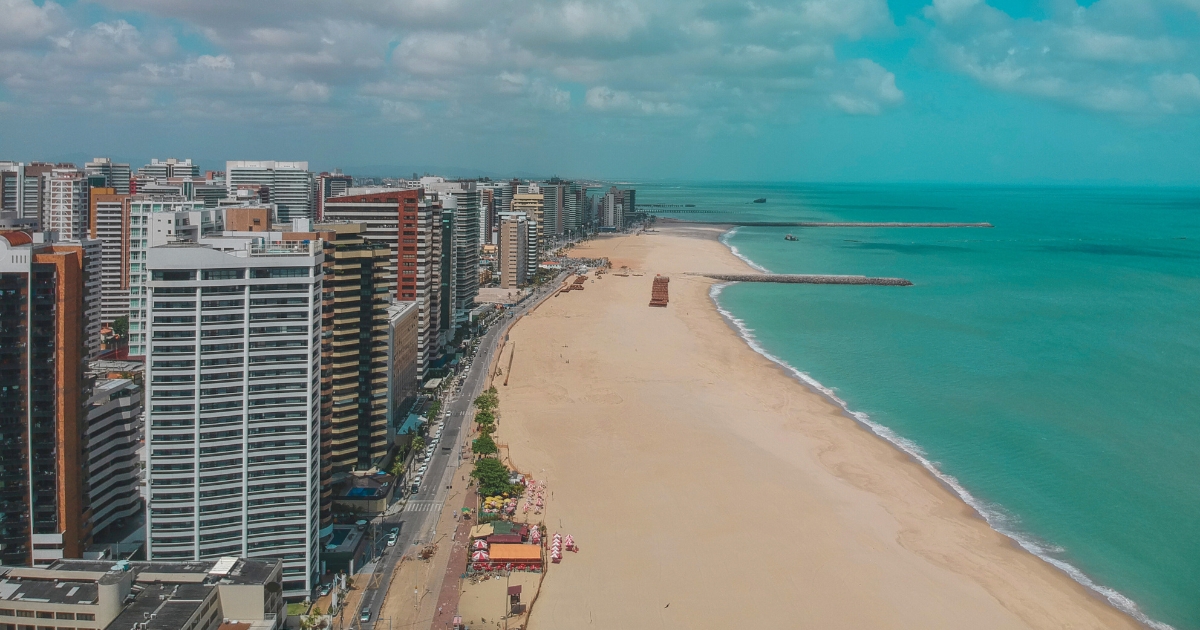Securing a Brazil work visa opens doors to a vibrant South American hub where pristine beaches meet bustling metropolises. For digital nomads seeking to balance professional responsibilities with cultural immersion, understanding Brazil’s visa landscape is crucial. Recent regulatory changes have made navigating the work visa process more accessible, though it still requires careful attention to detail.
This guide walks you through everything from visa types to application procedures, ensuring your transition to working from Brazil is seamless. Whether planning a short-term stay or considering Brazil as your long-term remote work destination, we’ve gathered essential information to help you make informed decisions about your Brazilian work authorization journey.
Understanding Brazil work visa types for remote professionals

Brazil offers several visa categories that might suit digital nomads and remote workers, each with distinct requirements and benefits. Identifying the right Brazil work visa type is the first crucial step in your journey to working legally in this diverse country.
1. Temporary Work Visa (VITEM V)
The Temporary Work Visa (VITEM V) serves professionals with employment ties to Brazilian companies. This authorization requires a formal job offer from a Brazilian employer who must initiate the application process through Brazil’s immigration authorities.
Key characteristics include initial validity of up to 2 years with possibility for extension, sponsorship from a Brazilian company, and employer-initiated application process. It allows holders to receive payment from Brazilian sources.
While primarily designed for traditional employment arrangements, some digital nomads have successfully used this pathway when collaborating with Brazilian businesses as consultants or contractors.
2. Digital Nomad Visa
In January 2022, Brazil introduced a dedicated digital nomad visa (officially called “Residence Permit for Remote Workers”), specifically targeting location-independent professionals. This specialized visa allows foreign nationals to reside in Brazil while working remotely for companies or clients outside the country.
Requirements include proof of employment or service provision to foreign companies, minimum monthly income of US$1,500 or bank balance of US$18,000, valid health insurance coverage in Brazil, and initial one-year duration with possibility for renewal.
🌟 Pro tip: when applying for the digital nomad visa, provide detailed documentation of your remote work arrangements, including contracts and payment history, to strengthen your application.
3. Business Visa (VITEM II)
For digital nomads planning shorter stays or exploratory visits, the Brazilian Business Visa (VITEM II) provides a viable option. This visa permits business activities but not formal employment within Brazil.
The Business Visa is valid for up to 90 days per year and allows attendance at meetings, conferences, and business negotiations. It does not permit employment by Brazilian companies but can be extended under certain circumstances.
💡 Did you know? Business visa holders can legally conduct remote work for overseas employers while in Brazil, making it a popular choice for digital nomads on shorter stays.
Brazil work visa application process: step-by-step guide

Applying for your Brazilian work permit involves multiple steps and careful preparation. The process varies slightly depending on your nationality and visa type, but the following framework applies to most applicants.
Preparing your documentation
Before beginning your visa application, gather essential documents including a valid passport with at least six months validity, completed visa application form, recent passport-sized photos, proof of accommodation, travel itinerary, financial statements, criminal background check, and specific documents depending on visa type.
For the digital nomad visa, you’ll also need proof of remote work status, health insurance valid in Brazil, and a declaration of ability to work remotely.
Submission and processing
Once your documents are prepared, schedule an appointment with the Brazilian consulate in your country of residence. Submit your completed application and supporting documents, pay the visa application fee, provide biometric data if required, and wait for processing, which typically takes 2-4 weeks but can vary significantly.
🌟 Pro tip: start your Brazil work visa application at least 2-3 months before your planned departure to allow for any unexpected delays in processing.
After approval: registration in Brazil
Receiving your visa is just the first step. After entering Brazil, you must register with the Federal Police within 90 days to receive your Residence ID Card (CRNM). Schedule an appointment online, bring your documentation, pay the registration fee, provide biometrics, and receive a protocol until your CRNM is ready.
Failure to register can result in fines and immigration complications, so mark this important step on your calendar immediately after receiving your visa.
Digital infrastructure for remote work in Brazil

Successful remote work in Brazil depends heavily on reliable digital connectivity. Understanding the technological landscape is essential for digital nomads planning to use their Brazil work visa effectively.
Internet connectivity and coworking options
Brazil’s internet infrastructure varies significantly between urban and rural areas. Major cities offer high-speed fiber connections with average speeds of 50-150 Mbps, while rural areas may have limited connectivity. 4G coverage is extensive in populated areas, with 5G rolling out in major cities.
For reliable connectivity, consider coworking spaces in major cities, serviced apartments with verified connections, or mobile hotspots as backup solutions.
🌟 Pro tip: ensure seamless connectivity wherever you work in Brazil with Holafly’s eSIM. Their data plans provide reliable backup internet access without the hassle of physical SIM cards, perfect for digital nomads who need constant connectivity for work obligations.
Banking and financial considerations
Managing finances efficiently is crucial while working remotely in Brazil. Opening a local bank account typically requires a CRNM (resident ID), though digital banks like Nubank offer easier solutions for foreigners. International transfers can incur significant fees, but credit cards are widely accepted in urban areas. Tax implications vary based on visa type and length of stay.
💡 Did you know? Holders of the digital nomad visa are not automatically subject to Brazilian income tax if their income source is outside Brazil, but those staying longer than 183 days within a 12-month period may have tax obligations.
Common challenges and solutions for Brazil work visa holders

Navigating the Brazilian visa system comes with particular challenges. Understanding these potential obstacles and their solutions can save you considerable time and stress when pursuing your Brazil work visa.
Bureaucratic delays and documentation issues
Brazil’s bureaucracy can be complex and time-consuming. Common challenges include unexpected delays in visa processing, requests for additional documentation, inconsistent information between agencies, and language barriers.
To mitigate these issues, start all processes earlier than anticipated, maintain copies of all documents, consider hiring an immigration consultant for complex cases, and use certified translation services for all non-Portuguese documents.
Visa extensions and status changes
Extending your stay or changing your visa status while in the country requires careful planning. Submit extension requests at least 30 days before visa expiration. Changing from tourist to work status generally requires leaving and re-entering Brazil. Digital nomad visa renewals require proof of continued remote employment and financial stability.
🌟 Pro tip: schedule any Federal Police appointments as soon as you know you’ll need them, as the online scheduling system can show availability several weeks or even months in the future.
Final thoughts: is a Brazil work visa right for your digital nomad journey?

Brazil offers digital nomads a unique blend of professional opportunity and lifestyle benefits. With its dedicated digital nomad visa, Brazil has demonstrated its openness to the growing remote work movement. The country’s diverse environments—from cosmopolitan cities to coastal paradises—provide settings for every work preference and lifestyle choice.
When considering a work visa for Brazil, weigh factors like your intended duration of stay, work requirements, and lifestyle preferences. The digital nomad visa offers the most straightforward path for true remote workers, while business visas might suffice for shorter exploratory stays. For those with connections to Brazilian companies, the traditional work visa remains a viable option.
Whatever path you choose, proper preparation and understanding of the requirements will significantly smooth your transition to working remotely from this vibrant South American nation.
Ready to begin your remote work journey in Brazil?
With the right Brazil work visa in hand, Brazil offers digital nomads an incredible backdrop for productive remote work combined with rich cultural experiences. From the vibrant energy of Rio de Janeiro to the tech hub of São Paulo or the laid-back beaches of Santa Catarina, your work environment can match your professional and lifestyle preferences.
Need more guidance on your nomadic lifestyle? Explore Nomada’s comprehensive resources for digital nomads, from practical tips to stress-free solutions for global work and travel.
Ready to make Brazil your next remote work destination? Let Nomada be your guide 👉
Frequently asked questions about Brazil work visas
Technically, Brazilian law doesn’t explicitly prohibit remote work for foreign employers while on a tourist visa for short stays. However, for regular remote work or stays exceeding 90 days, the Brazil work visa for digital nomads is the appropriate and legally compliant option. This specialized permit is specifically designed for remote workers and provides greater security and legal standing.
Processing times vary by consulate and visa type, typically ranging from 2 to 8 weeks. Digital nomad visa applications generally process faster than traditional work visas requiring Brazilian company sponsorship. External factors like high application volumes or pandemic-related staffing issues can extend these timeframes, so applying well in advance is advisable.
Yes, most Brazilian work permit types, including the digital nomad visa, allow for accompanying family members. Spouses, partners (including same-sex partners), and dependent children can typically receive dependent visas. You’ll need to provide additional documentation such as marriage certificates, birth certificates, and proof of financial capacity to support dependents.
Overstaying your visa in Brazil can result in fines (approximately R$100 per day, up to R$10,000), possible deportation, and potential restrictions on future visa applications or entries. If circumstances beyond your control affect your ability to depart before your visa expires, contact the Federal Police to explore legal extension options before your visa expires.




